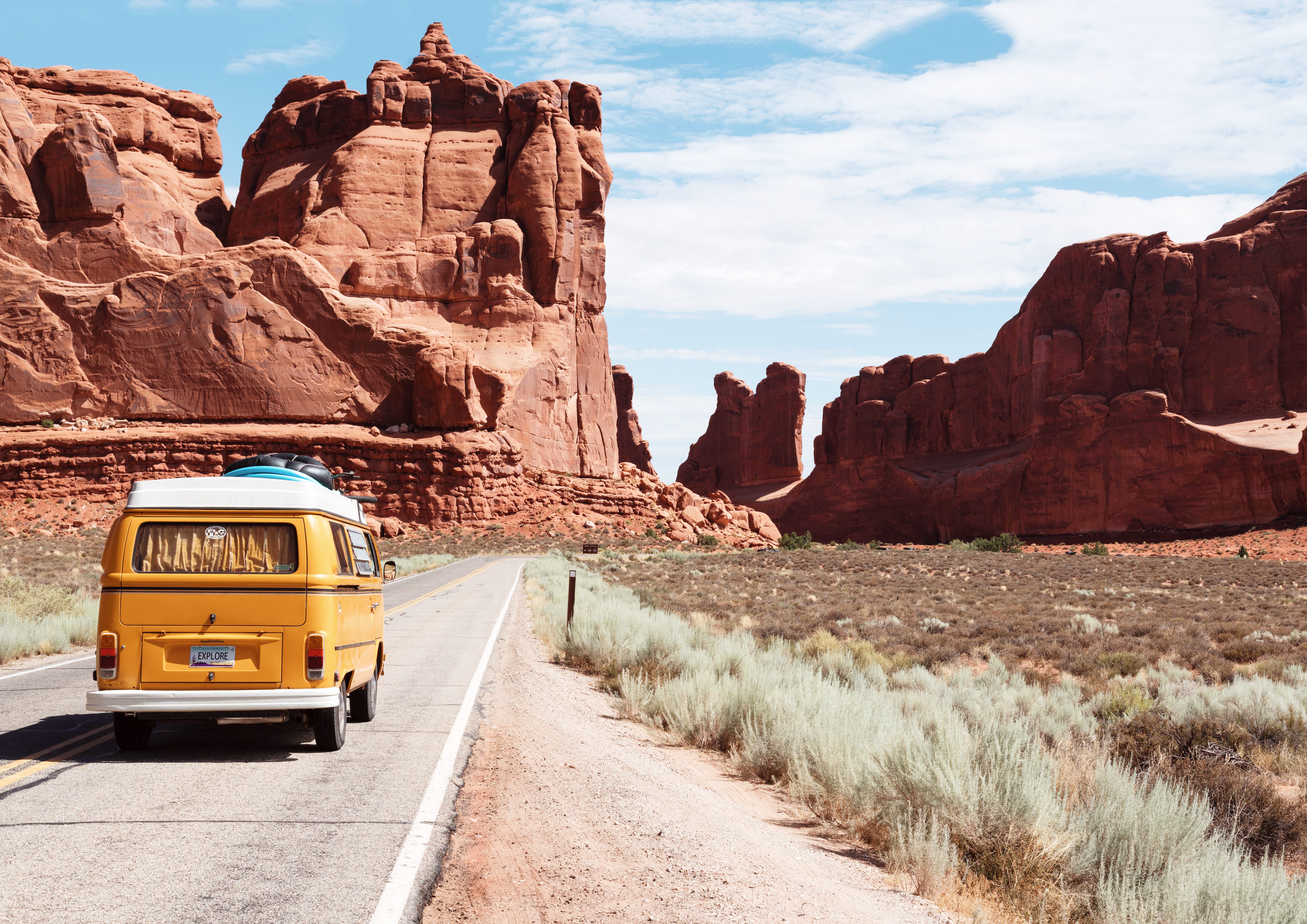With the new year just begun, many of us are looking forward to traveling. Whether by plane, car, or train, there are so many exciting destinations just waiting to be explored!
What if I told you there was a way to get a truly unique and incredible piece of nature as a present – in the shape of a fossil?
I wouldn’t lie. There is a way. But before you start celebrating, let’s discuss the details – because saving a fossil is no easy feat.
The Importance Of Good Preparations
The first step to acquiring a fossil is to ensure that you have prepared thoroughly for the journey. There are many different types of fossils out there, and it would be a shame to come all this way and not be able to examine them all because you didn’t prepare properly beforehand.
Make sure you do your research before setting out. It would be best to learn about the different formations that were previously located in your travel destination and the processes which led to their becoming fossils. This way, you will be able to properly identify what you’re looking at – and not get stuck with a mistake. You don’t want to ruin the surprise of finally finding a very unique and valuable fossil, do you?
The Legal Aspects
Fossils are considered to be the intellectual property of the country they were discovered in. This means that, as a foreigner, you could potentially run into legal problems if you aren’t allowed to export it. It’s best to be on the safe side and make sure you follow the proper legal procedures when you find a fossil. This will also greatly reduce the chance of getting your hands on it accidentally. You don’t want to ruin the surprise of finally finding a very unique and valuable fossil, do you?
There are also many cases where people export fossils without the proper paperwork and get caught when the customs officer sees the value of what they’re carrying. Sometimes it’s simpler to fill out the right kind of paperwork or to pay a bit more for the privilege of bringing a fossil out of the country. Better to be safe than sorry.
The Geographic And Climactic Factors
Geographic and climactic factors can play a big role in where you’ll be able to find fossils. The more you know about the area you’re traveling to, the better you’ll be able to pinpoint the exact locations of the fossils. It’s always best to have a rough idea of where you’ll be going and the general surroundings. The more you know, the more you can add to your preparation. For instance, if you’re going to Italy, you might want to consider looking up the layers of sediment that were deposited there during the time of the dinosaurs. This will greatly increase your chances of finding a paleontologicstwo.
Similarly, caves are often a great place for fossils to be deposited. The constant dripping of water will help fill the voids inside the cave with minerals which can then be fossilized. Make sure you bring a torch with you so you can examine the cave’s interior carefully and thoroughly. Otherwise, you could find yourself groping around in the dark which could lead to serious injuries or even death.
The Economic Considerations
Finally, let’s not forget about the economic considerations. There are many situations where you could find yourself in a foreign country with little money, and this is when you need it most. So, it’s essential to think about where you’ll get your next paycheque. Will it come from fossil sales? Or bookings for shows you’re taking part in? Or even if you’re doing freelance work, will you get paid at all?
The more you know about the economy of your destination, the better you’ll be able to plan your spending and avoid any unnecessary costs that could arise. For example, if you know that Italy is particularly expensive due to its geographical location and the fact that a lot of its food is imported, you might want to avoid paying for meals in cafes – especially if you’re studying or doing research. Instead, try and find a hostel with a dining room that serves inexpensive food that you can reheat after your exploration. It’s all about being smart about where you spend your money, and how much you spend.
So, Where Should You Look?
With all that said, here are some excellent places to look for fossils – along with a few notes on how to properly identify them. First up is Germany, which has an extremely high concentration of Jurassic fossils in the sandstone rock formations near the North Sea. The sheer volume of fossils which have been uncovered there is truly incredible. You wouldn’t believe how many brachycephalic (short-headed) dinosaurs have been found – if you Google it, you’ll find countless scientific papers and blog posts which document the findings. If you’re ever in the area, make sure you check it out.
Next, let’s look at Morocco, which is located in North Africa. Here, you’ll find a lot of fossils dating back to the time of the dinosaurs, along with mammals which went extinct along with them. You might want to head to the Northern part of the country to see the fossils in their natural habitat. Traveling there now, you’ll see desert landscapes which are filled with huge rocks that have somehow stayed put over time. It’s not uncommon to see small dinosaurs which were probably left behind by the larger ones – as fossils are often the result of predator-prey interactions. It’s a great place to look for fossils if you’re a paleontologist or an archaeologist. Sadly, getting permission to excavate here can be difficult – especially as the government doesn’t have any kind of official policy regarding fossils yet. This is why it’s best to travel there undercover to do your research and avoid any legal hassles. If you do get caught, it’s likely that you’ll be fined or imprisoned.
One More Place To Check
Finally, let’s not forget about Brazil. Here, you’ll find a lot of fossils dating back to the time of the dinosaurs which were buried in a mass extinction event. This is because what happened there was not one planet but two. The Earth began to cool down after the dinosaurs went extinct, and the lighter rocks (which were less dense) began to float off into space. However, some of these rocks came back and hit the Earth, causing a mass extinction of another kind – the kind which wipes out entire species. This is the reason why you’ll find so many fossils along the coastline of this huge country. Some of these species might have looked like dinosaurs, but they were most likely the smaller fish and sea animals which were eaten by the dinosaurs (or the other way around). It’s another place which you might want to travel to, especially if you’re a paleontologist or an archaeologist. Brazil is rich in both flora and fauna, and it’s very likely that you’ll stumble upon some interesting creatures which you can study and excavate. Unfortunately, Brazil is also one of the most dangerous countries in the world when it comes to bandits, so make sure you’re prepared for any kind of legal trouble. This is why it’s best to travel there undercover to do your research and avoid any kind of trouble. This is also why you should probably avoid taking a bus or a plane to get to your destination. It’s much safer to take a cab which will only stop at certain points along the way. If you do get picked up by the police, don’t give them any reason to search you or your belongings. Simply say that you’re a tourist and that you don’t speak Portuguese – your best defense is a good offense. Hopefully, this will create some goodwill towards you and allow you to get away without any charges being laid.
Getting A Piece Of History
This brings us to the main point of getting a fossil. As we’ve established, they’re not easy to get, but they’re so worth it. Once you do, you’ll be able to study them and learn about the history of your destination. It’s just impossible to put a price tag on knowledge – especially when it comes to science. Who knows? You might even be able to sell them one day and make some quick cash – if you’re lucky enough to find a buyer who knows what they’re looking at. Who knows? Maybe you’ll even be able to find a museum or a private collection which wants to buy your fossil for the sake of science. Think of how much you’d learn from just one fossil – how much is that worth in monetary terms?




